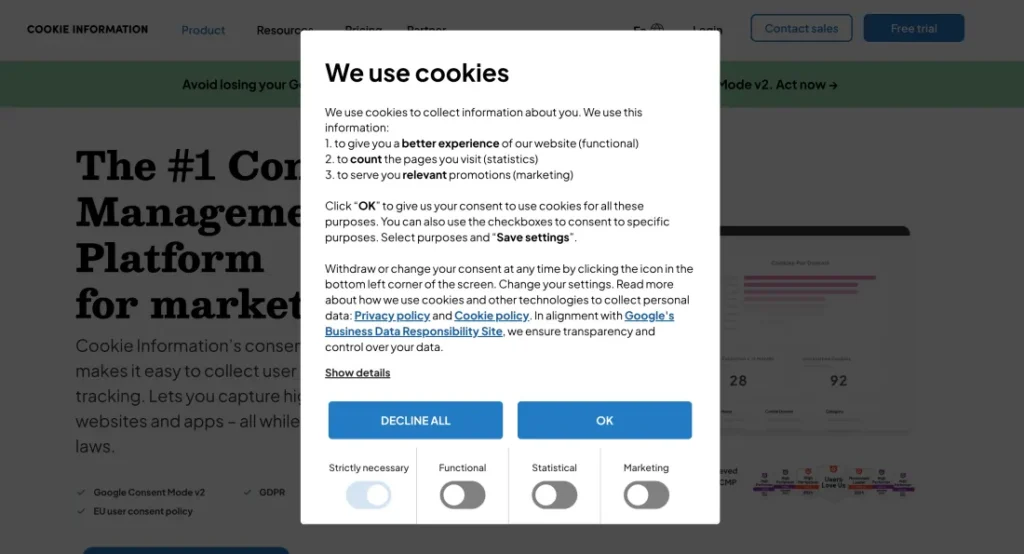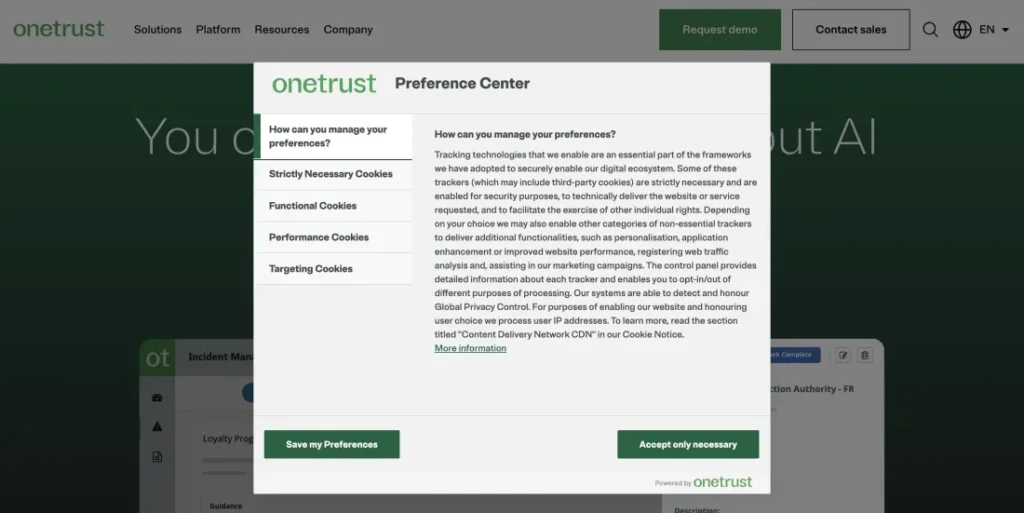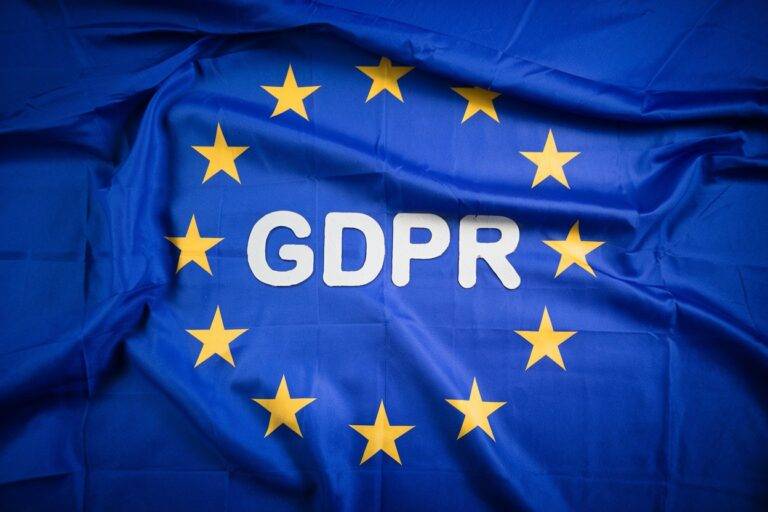In today’s digital world, privacy concerns and regulations like GDPR and CCPA have transformed how businesses handle personal data. At the center of this shift is the Consent Management Platform (CMP) – a powerful tool that’s become essential for balancing innovation with user privacy protection.
What is a Consent Management Platform?
A CMP is a software designed to help businesses collect, manage, and document user consent in accordance with data protection laws. These platforms serve as intermediaries between users and organizations, ensuring that data processing aligns with both user preferences and regulatory requirements.

When you visit a website and see a banner asking for cookie consent – that’s a CMP in action. But modern CMPs do much more than display cookie banners; they’re systems that give users control over their data while helping organizations demonstrate transparency and ethical data practices.
How CMPs Work
The typical flow of a CMP begins when a user visits a website or app:
- Consent Collection: The CMP presents an interface (cookie box) informing the user about data collection practices and requesting permission.
- Preference Storage: Once the user makes their choices, the CMP securely records these preferences in a centralized repository.
- Disabling data: The CMP communicates with the website’s code and third-party integrations to enable or disable data processing based on user choices.
- Ongoing Management: Users can revisit and modify their consent choices at any time, with changes implemented in real-time.
- Documentation: Throughout this process, the CMP maintains detailed records that help businesses demonstrate compliance.
Business Benefits Beyond Compliance
While regulatory compliance is often the primary motivation for adopting a CMP, the advantages extend far beyond checking boxes:
Building Trust
By providing transparent, user-friendly privacy controls, businesses can differentiate themselves in crowded markets. When users understand how their data is used and have meaningful choices, they’re more likely to engage with digital services and share information – turning privacy into a competitive advantage.
Operational Efficiency
CMPs automate consent workflows, reducing manual intervention and streamlining compliance processes. This automation minimizes human error, ensures consistency across channels, and frees up resources for higher-value activities.
Risk Mitigation
The ability to maintain accurate, real-time records of consent transactions significantly reduces legal and reputational risks. If faced with a regulatory inquiry or user complaint, organizations can quickly produce evidence of compliance and demonstrate respect for user preferences.
Industry Applications
CMPs have been adopted across numerous sectors, each with unique requirements:
- Media and Advertising: Managing consent for cookies, trackers, and third-party vendors is essential, especially with the phaseout of third-party cookies.
- Healthcare and Finance: These industries handle sensitive personal data and benefit from the added layer of protection and accountability that CMPs provide.
- E-commerce and Retail: CMPs support personalized marketing and customer analytics while ensuring data collection complies with user preferences and legal requirements.
Frequently Asked Questions
What is the difference between a CMP and a cookie consent banner?
While cookie consent banners are a visible component of a CMP, a full Consent Management Platform provides much more comprehensive functionality. CMPs manage the entire consent lifecycle, including preference storage, enforcement across systems, audit trails, and integration with marketing tools and regulatory frameworks.

Are CMPs legally required?
While no law specifically mandates the use of a CMP by name, organizations handling personal data of individuals protected by regulations like GDPR or CCPA effectively need a systematic approach to consent management. CMPs have become the standard solution for meeting these requirements.
How much does implementing a CMP cost?
Costs vary widely based on organization size, website complexity, and feature requirements. Solutions range from free basic tools with limited features to enterprise platforms costing thousands monthly. Most CMP providers offer tiered pricing based on traffic volume and required capabilities.
Can CMPs help with regulations beyond GDPR and CCPA?
Yes, modern CMPs are designed to support multiple regulatory frameworks, including Brazil’s LGPD, Canada’s PIPEDA, and emerging privacy laws across the globe. Leading platforms offer region-specific compliance templates that can be deployed based on user location.
Conclusion
Consent Management Platforms have evolved from simple compliance tools into strategic assets that drive trust, accountability, and user empowerment.
By prioritizing transparency and ethical data practices, organizations can build stronger customer relationships while navigating complex regulatory requirements.
As technology and regulations continue to evolve, CMPs will play an increasingly vital role in shaping the future of digital privacy.
Looking for the right CMP for your business? Check out our comprehensive CMP Ranking and Comparison Guide where we evaluate the top solutions on the market based on features, pricing, ease of implementation, and regulatory compliance. Our expert analysis will help you find the perfect fit for your organization’s specific needs and budget.


